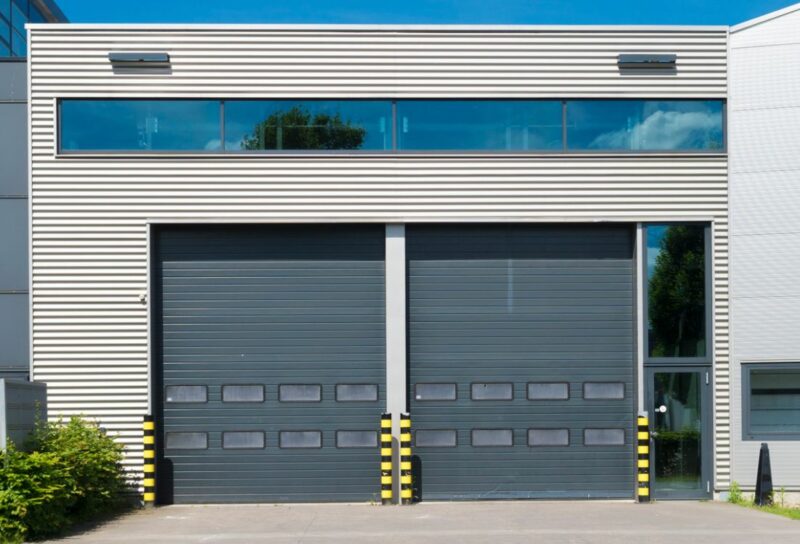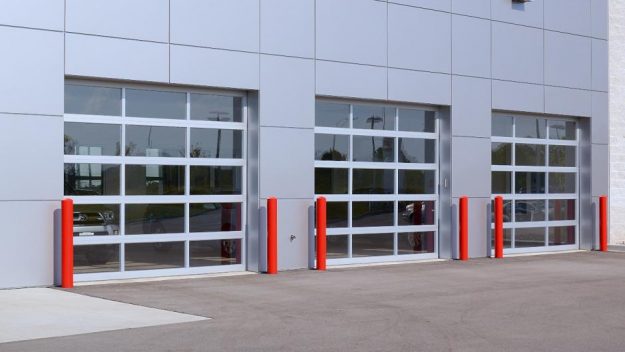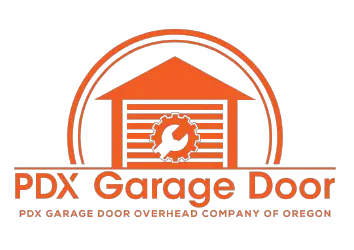
Selecting the perfect garage door for your business goes beyond mere functionality; it’s a decision that impacts aesthetics, security, efficiency, and commercial garage door maintenance. In the realm of commercial garage doors, three primary contenders have emerged: sectional, roll-up, and overhead. Each variant brings its own set of advantages and considerations, catering to distinct operational needs.
Sectional garage doors, composed of individual panels, offer customization options and insulation benefits, making them suitable for various industries. Roll-up doors, with their compact vertical design, optimize space and are known for durability; they are often preferred in settings where security is paramount. Meanwhile, overhead doors, renowned for their seamless integration and swift operation, find their place in environments demanding high accessibility.
In this article, professionals at PDX Garage Door delve into the intricacies of sectional, roll-up, and overhead doors, dissecting their features, benefits, and ideal use cases. By unraveling the nuances, we aim to equip you with the knowledge needed to make an informed decision that aligns with your business requirements.
The Architectural Appeal: How Each Door Type Enhances Your Business Aesthetics
When it comes to your business premises, aesthetics play a significant role in creating a lasting impression. The type of garage door you choose can either seamlessly blend with your architectural style or make a bold statement that sets your establishment apart. Let’s explore how each door type—sectional, roll-up, and overhead—can enhance your business’s aesthetics with the expertise of a Portland overhead door service.
Sectional Garage Doors: These doors are like a canvas waiting for your artistic touch. Comprising multiple panels that can be customized with various materials, finishes, and colors, sectional garage doors offer a high level of design flexibility. The segmented design adds depth to the exterior while allowing you to experiment with textures and visual elements that resonate with your brand identity. Moreover, the insulation properties of sectional doors not only contribute to energy efficiency but also ensure a comfortable working environment inside.
Roll-Up Garage Doors: If your business exudes an industrial or utilitarian vibe, roll-up doors can be the perfect complement. Their vertical operation and compact roll design maximize space while delivering a robust appearance. Available in materials like steel, aluminum, and even glass, roll-up doors can be chosen to reflect the character of your business. These doors often evoke a sense of security and are commonly found in warehouses, service stations, and manufacturing facilities. Be sure to stay on top of your commercial roll-up door maintenance to ensure their continued reliability and security.
Overhead Garage Doors: Seamlessness defines overhead garage doors. Their ability to blend with the architecture while providing ample access is unparalleled. These doors are frequently used in spaces where maintaining a consistent façade is essential, such as automotive dealerships and upscale retail establishments. The absence of visible hardware lends an air of sophistication, allowing the architectural details of your building to take center stage.
In essence, the choice of garage door type can significantly contribute to your business’s overall aesthetics. As we move forward, we’ll delve deeper into the functional aspects of each door type to help you make a well-rounded decision that encompasses both style and substance.

Safety and Security: Prioritizing Business Protection with the Right Choice
When it comes to commercial spaces, safety and security are non-negotiable aspects. Your garage door choice can significantly impact the level of protection your business enjoys. Let’s explore how each garage door type—sectional, roll-up, and overhead—contributes to safeguarding your establishment.
Sectional Garage Doors: These doors not only offer aesthetic versatility but also bring a substantial level of security to the table. The individual panels interlock tightly when closed, creating a sturdy barrier that deters unauthorized access. Moreover, many sectional doors can be equipped with advanced locking mechanisms, enhancing their resistance to break-ins. The insulation properties of sectional doors also contribute to maintaining a secure interior environment by preventing external elements from seeping in.
Roll-Up Garage Doors: Roll-up doors, with their compact design, offer a unique advantage in terms of security. The vertical operation eliminates the need for tracks extending into the ceiling, making it challenging for intruders to tamper with the door’s mechanism. This design, coupled with materials like heavy-duty steel, can significantly impede forced entry attempts. For businesses dealing with valuable equipment or merchandise, roll-up doors provide a robust physical barrier that’s hard to breach.
Overhead Garage Doors: Overhead doors excel not only in aesthetics but also in security. Their operation involves rolling the door panels overhead, often revealing no external handles or hinges. This design minimizes potential points of vulnerability, making it difficult for unauthorized individuals to manipulate the door from the outside. This heightened security is particularly appealing for businesses that require stringent protection, such as car showrooms or high-end retail stores.
In an age where business security is paramount, your choice of garage door type can have a profound impact. Sectional, roll-up, and overhead doors offer varying degrees of protection, each catering to different security needs. As you decide which door type aligns best with your establishment, consider not only the visual aspects but also the robustness of the security features.
Tuning Up Your Investment: Essential Maintenance for Commercial Garage Doors
Investing in the right garage door for your business is a strategic move, but ensuring its longevity and optimal performance requires ongoing maintenance. Let’s delve into the crucial aspects of maintaining sectional, roll-up, and overhead garage doors, safeguarding your investment for the long haul.
Sectional Garage Doors: Regular maintenance of sectional doors involves inspecting the individual panels for any signs of wear, such as dents or rust. Lubricating the hinges and tracks keeps the operation smooth and minimizes friction-induced damage. Additionally, checking the weather stripping and seals is essential to maintaining energy efficiency and keeping the elements at bay. A periodic examination of the door’s balance and the functionality of its safety features guarantees safe operation.
Roll-Up Garage Doors: Roll-up doors demand attention to their springs, as these are critical components that bear the weight of the door during operation. Regular lubrication and inspections can prevent premature wear and tear. It’s equally important to keep the tracks clean and aligned to avoid misalignment issues. Due to their compact design, roll-up doors can be susceptible to debris accumulation, which can impede smooth operation if left unchecked.
Overhead Garage Doors: Ensuring the smooth and silent movement of overhead doors hinges on maintaining the opener system. Regularly inspect the opener’s motor, gears, and chains, and address any unusual sounds promptly. The door’s tracks require consistent cleaning and alignment checks to prevent misalignments that could hinder their operation. Also, check for any loose hardware and tighten it as needed to maintain structural integrity.
Consistent, scheduled commercial garage door tune-ups by professionals such as PDX Garage Door are crucial for the longevity and reliability of your commercial garage doors, regardless of their type. It’s recommended to establish a maintenance plan that addresses the unique needs of your chosen door type, keeping in mind the operating environment, frequency of use, and potential wear and tear. By investing in regular upkeep, you not only prolong the life of your doors but also ensure that they continue to function safely, maintaining the security and accessibility of your business premises.
Conclusion
The distinction between sectional, roll-up, and overhead commercial garage doors extends beyond plain functioning; it affects the aesthetics, security, and efficiency of your organization. Remember that there is no one-size-fits-all answer as you go through the options. Each door type has its own set of benefits and considerations that are customized to certain operating demands. Sectional doors offer flexibility, roll-ups, and an industrial edge, and overhead doors offer seamless integration. Sectional doors are secured with interlocking panels; roll-up doors deter break-ins, and overhead doors minimize vulnerability.
Remember that while the initial decision is crucial, proper maintenance is equally paramount. Regular upkeep ensures your chosen garage door type continues to operate reliably and withstand the test of time. By staying proactive with inspections, and lubrication, and addressing minor issues promptly, you safeguard your investment and maintain a secure, efficient, and visually appealing business space, with the option of seeking professional assistance for more complicated issues like a Sectional Garage Door Repair.
Frequently Asked Questions
Question: How do I decide which garage door type is best for my business?
Answer: Consider factors such as architectural style, security requirements, operational needs, and aesthetic preferences. Consult with professionals to understand which door type aligns with your unique circumstances.
Question: How can I ensure my garage doors remain secure over time?
Answer: Regular maintenance is key. Schedule professional inspections and lubrication, and address any issues promptly. Keep an eye on security features and consider advanced locking mechanisms for added protection.
Question: Are there maintenance differences between the door types?
Answer: Yes, each type has unique maintenance needs. For example, sectional doors require inspections of individual panels; roll-up doors require spring and track maintenance; and overhead doors require opener system checks.

